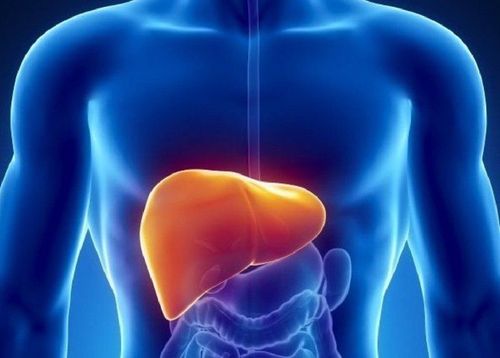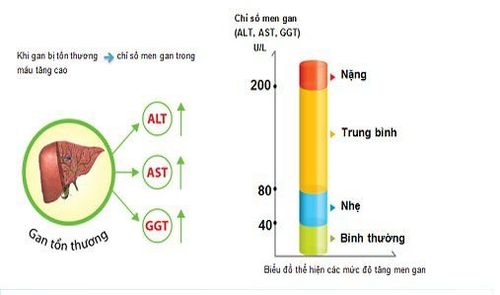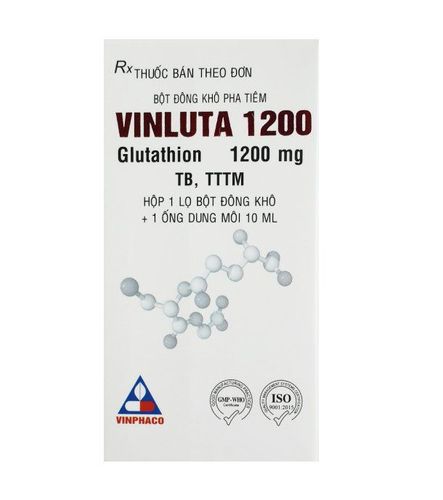This is an automatically translated article.
Blood test to evaluate liver function is a common test because the rate of liver disease is increasing. So what is the purpose of liver blood tests, what are commonly used liver blood test indicators?
1. Purpose of liver blood tests
The liver functions and plays an important role in the body. Like many other internal organs, when the liver is damaged or has an abnormal problem, it will directly affect health. At this time, examination and performance of blood tests on the liver are indicated for the purposes of:
Assessing the working capacity of the liver or evaluating liver function. Detect and monitor liver damage. Diagnosis determines the cause of liver problems, thereby giving the appropriate treatment plan. Monitor the effectiveness of treatment for liver disease. Screening for cirrhosis and liver cancer. However, patients are not allowed to perform liver blood tests on their own, but must be prescribed by a doctor after examination to determine the cause of the disease.
2. Liver blood test indicators
The liver blood test indicators include: Bilirubin index, liver enzyme indexes (AST, ALT, ALP, GGT), Albumin index and platelet index.
2.1. Bilirubin - A blood test that evaluates liver function Bilirubin is one of the blood tests for the liver that cannot be ignored, as it shows the extent of liver damage. Hemoglobin in the blood will be converted into Bilirubin during the regeneration of old red blood cells. Therefore, when the Bilirubin concentration is higher than the normal value, the patient will have yellowing of the skin and eyes, dark urine.

Chỉ số xét nghiệm máu về gan trong đó có xét nghiệm Bilirubin
Normal total Bilirubin values are in the range of 0.8 - 1.2 mg/dL (equivalent to 5 - 17 mmol/L). Direct bilirubin will vary between 0.2 - 0.4 mg/dL and indirect by 0.6 - 0.8 mg/dL. The blood test index to assess liver function Total Bilirubin is above 2.5mg/dL in patients with signs of jaundice.
Direct increase in Bilirubin: Diagnosis of gallstone disease, biliary obstruction, biliary tract tumor, ... Indirect Bilirubin increase: Diagnosis of hemolytic or Gilbert syndrome. 2.2. Liver Enzyme Indicators Tests that measure liver enzymes include AST, ALT, ALP and GGT, allowing to check the health of the liver.
AST (Aspartate Transaminase): Normal AST is less than 37 UI/L. An increase in AST means that liver cells are destroyed, hepatitis, chronic hepatitis when AST is 20 times higher. ALT (Alanine Transaminase): Normal ALT is less than 40 UI/L. Similar to AST, elevated ALT means liver cells are being destroyed. However, compared with AST, this is a sensitive and specific indicator in the diagnosis of cirrhosis and alcoholic hepatitis. ALP (Alkaline Phosphatase): A normal ALP is in the range of 53 - 128 UI/L. It is also an indicator of important liver enzyme status. When ALP is increased, it means that there is a sign of hepatitis, but there are different levels of increase. A mild and moderate increase in ALP (2 times the normal value) allows the diagnosis of hepatitis, cirrhosis, and metastatic malignancy to the liver. An elevated ALP (3 to 10 times the normal value) allows a diagnosis of biliary obstruction. Note, the normal value of ALP depends on factors including gender, age, and blood type. Not only liver diagnosis, this index also evaluates bone damage, cardiovascular disease, kidney tumor, infectious disease or malnutrition.
GGT (Gamma - Glutamyl Transferase): Normal GGT is in the range of 20 - 40 UI/L. When one of the liver enzyme indicators is GGT increased, it means that the liver is damaged such as viral hepatitis, cirrhosis caused by alcohol, beer, bile duct obstruction, cancer metastasis to the liver, ... In the indicators , GGT is an indicator of liver and biliary tract diseases. 2.3. Platelets - Blood test index to assess liver function Platelet test is also one of the important tests in blood tests for liver that cannot be ignored. Because the liver is responsible for producing proteins for blood clotting, platelet tests are aimed at determining clotting status and measuring the amount of proteins that aid in clotting.
Normal platelet value: 150 - 450 x 103/microliter. When liver function is impaired, the liver cannot supply enough protein and slows blood clotting, and the platelet count will also decrease.
2.4. Albumin - A blood test that evaluates liver function Albumin accounts for 60 to 80% of the total protein in the body and is an important protein component. Normal Albumin values are in the range of 28 - 54g/L. When this index decreases, it means that liver function is impaired, chronic liver disease or cirrhosis. In addition, the nutritional status of the body is also very poor.

Albumin là một trong các chỉ số xét nghiệm máu về gan
3. What should be noted before performing liver blood tests
Liver blood test indicators are an important basis for making a diagnosis. Therefore, in order not to affect the liver test results, it should be noted:
Fasting for 4-6 hours before the test, only drinking filtered water. Do not take medicine for at least 12 hours before the test to avoid the drug ingredients affecting the results. Do not drink alcohol, coffee, smoke, use stimulants at least 4 hours before the test because it can make the test results erroneous. For accurate results, liver tests should be done in the morning. When seeing abnormal liver symptoms such as yellow skin, yellow eyes, body fatigue, dark urine, ... patients need to go to medical facilities to be examined, examined and do tests. Blood tests for liver function.
Please dial HOTLINE for more information or register for an appointment HERE. Download MyVinmec app to make appointments faster and to manage your bookings easily.













